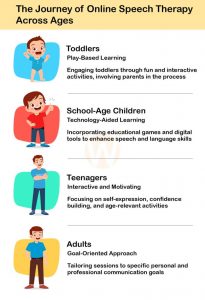Don’t Neglect Your Anxiety | Anxiety Disorders Should be Treated
By Prapoorna M
Last Updated: November 27, 2021
Anxiety is the most widely experienced mental disorder, especially in developed and developing countries. We often feel anxious globally 1 in 13 has anxiety. But being common won’t make it less challenging to experience. Anxiety can also disturb your personal life, social life, and work-life, weakening you physically and emotionally. It can be mild, moderate, and severe depending on the intensity and longevity it affects. Anxiety, stress, and depression are among the widely increasing mental health issues worldwide. Mental health is very important as a perfect engine to a vehicle, to move smoothly in the right direction.
Unfortunately, it is the most neglected, as, unlike physical health, it doesn’t always show its emergency. A study by the India State-level disease burden initiative found that one in every seven persons suffer from various mental disorders in 2017 after which the growth rate is increasing.
Common symptoms
Your body gives you some physiological cues of you being anxious. When a person is being anxious for a longer period of time, if can actually be felt. But, we don’t usually give attention to such clues. In fact, performance anxiety is often felt when we are about to do something and know that our result will be judged. But some people carry it through a longer time fearing that everything they do will be judged. Such thoughts could lead to anxiety.

The most common physical problems that people suffering from anxiety face in their daily lives are the following.
- Restlessness – People with anxiety feel so restless. They can’t think properly and their decision making gets affected because of the anxiety.
- Body aches – The body aches such as joint pains or muscle cramps is found in the people suffering from anxiety disorders.
- Chest pain and Palpitations – Rapid heartbeat and pain in the chest area can occur when someone feels anxious. This happens due to the change in the blood flow.
- Dizziness, Poor concentration and Memory – Anxiety can result in head-spinning, leading to dizziness. It could also result in poor concentration and memory loss.
- Racing Thoughts – Unnecessary worries and thoughts could pre-occupy the mind. Anxiety could give racing thoughts and negative thinking. This leads to emotional drain.
- Breathlessness – Such tensed state could leave someone in breathless condition. Being anxious could also bring trembles and over-sweating.
- Stomach Upset – Anxiety could trigger bowel movement. Indigestion problems, gastric. and stomach upset might also occur.
Neglecting the physical symptoms can worsen the condition of the sufferer. Many of them tend to neglect as it feels tough to cope with the stigma attached to getting treated for a mental health issue. They think that the self image could make disregard. Because of their high pain tolerance, some people don’t tend to give attention to the symptoms. But all of this could result in making it severe.
Types of Anxiety Disorders
Sometimes anxiety is experienced in a specific way and is identified as a specific anxiety condition. The most common types of anxiety disorders are:
- Generalized Anxiety Disorder
- Panic Disorder
- Social anxiety
- Specific phobias
- Obsessive Compulsive Disorder
- Post Traumatic Stress Disorder
All these could be mild, moderate and severe. Though anxiety is caused in a situation where our body detects a threat, (physical or psychological) there are certain factors which maintain anxiety and keeps it going. While there could be a traumatic life experience causing anxiety disorder, most of the times it’s a combination of multiple reasons for experiencing anxiety disorder.
Coping mechanisms
Anxiety becomes a disorder when it starts to affect your daily life activities. It becomes a problem when you are experiencing it a lot, in situations that should not be really scary or stressful. In such cases, one should realize the need for help to come out. Sometimes people worry that they are being anxious and this leads to more anxiety. So, understanding that anxiety is common and working on lessening the effects is more important.

Developing an understanding about anxiety would help in accepting the feeling, which in-turn would aid in managing anxiety. The positive coping mechanisms like identifying unhelpful thoughts and working on reducing
them by analyzing the actual conditions, knowing the difference between baseless illusions and real evidence-based incidents and outcomes, decatastrophizing, writing a thought record and differentiating between opinions and facts can reduce your anxiety. Improving your problem solving skills and practicing breathing exercises can help you manage your anxiety levels and minimize its affects.
Negative coping mechanisms of Anxiety could result in severe health issues. Smoking, consumptions of alcohol, drug abuse, etc., are some of such negative coping mechanisms that people get addicted to coming
out of anxiety. Neglecting anxiety and not seeking help could only make it worse. Consulting a psychologist could help you manage your anxiety levels and keep up your health. Wellness Hub has a team of experienced psychologists, who are ready to help you, either online or offline.
Book your Free Consultation Today
Parent/Caregiver Info:
Client’s Details:
* Error Message









